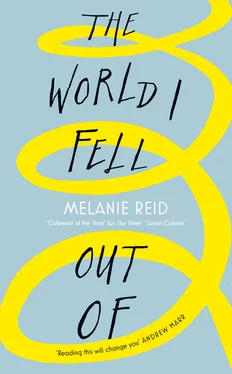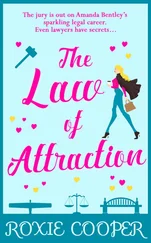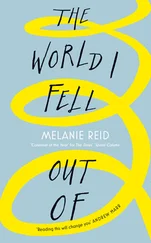So I began my rehabilitation, trying to ride that ghastly non-compliant new horse which was my body; a terrible physical challenge that bucked and threw me contemptuously, time and time and time again. They had given me a wheelchair with the brand name Quickie and in it I learnt a new definition of slowness. My nails grew faster than my progress down the corridor. Somehow I had to learn to exist again; my arms had to learn to support and move me; my hands, the fingers now tightening, clawing into stumps like decrepit Trafalgar Square pigeons, had to learn how to hold a kettle or a toothbrush and bear the pain of the push rims of the wheels on my palms. I was given thick leather mitts, which fastened with Velcro and were specially designed for easy use by tetraplegics, to protect the skin (see photo here). One day, trying to come back from the gym along the carpeted stretch of corridor – installed, sadistically but sensibly, to prepare us for real life – my arms gave up and the pile of the carpet steered me into the wall. I sat quietly weeping in frustration until a nurse took pity on me and pushed me off the carpet.
In the gym my routine was simple: arm exercises first – twenty minutes on the handbike, then biceps curls and triceps lifts on the weights machines. Then, hoisted onto the specialist plinths, I began the process of coping with the appendage formerly known as my body. Propped in a seated position, my feet on the floor, foam wedges behind me to catch me if I went backwards, I started to learn how to balance sitting upright. How peculiar it felt. Because I could not feel my backside in contact with the plinth; I had the sensation I was a head and shoulders poised on wobbly air. I swayed like a blancmange, only staying upright because I could grip the edge of the plinth with my crocked fingers and lean back on my arms.
Next, from the same seated position, as my left wrist strengthened and began to hurt less, I was told to place my hands beside me on the firm surface and try and lift myself. Impossible. But critical to the future. When your body is paralysed and you try to lift your own body weight solely with your unaccustomed arms, you cannot believe how hard it is. The movement starts in your brain with a huge heave and ends, if you’re lucky, in a flicker you barely perceive. The physios put a bench in front of my knees so that if I toppled forward, I would not go onto the floor. And there I sat, for perhaps forty minutes at a time, hands aching on the blue plastic, wobbling, tilting forward a little, bracing through my shoulders and arms, trying to heave. Did anything happen that time? I could only tell by peering down, trying to imagine a sensation of lightening. It was exhausting. And I couldn’t kid myself that I saw anything.
The gym had a radio, with notoriously bad reception, tuned by whichever member of staff got to it first in the morning. If Big Willie switched it on, we had Radio 2, because he was addicted to trivia and knew the answers on Pop Master. Margaret, the lovable, warm-hearted physio assistant, upon whose shoulder I often wept, preferred Smooth. And Susan, my own physio, a feisty rock-chick with a tongue stud and attitude, the woman who became the focus of my world, always went for Rock Radio. Somehow, as the weeks stretched onwards into summer, and the hours spent in the gym fused into one another, the only tune I can remember, throbbing fuzzily, flatly, over and over and over again, was ‘Heartbeat’ by Enrique Iglesias and Nicole Scherzinger. The more tinny and unmoving, the better, as far as I was concerned. Only in the gym could I bear music, where there was company and distraction. On my own radio, in the intimate surroundings of my own bed with an earpiece in, I never tuned to music stations. Only talk could I cope with. Current affairs. Hanging onto the familiar voices of the Radio 4 Today presenters, friends from my lost past, discussing current affairs that used to matter. When I was surprised by snatches of music or songs, especially those that meant something to me, the violence of my grief was overwhelming. Music released emotion. In order to stay strong, I had to shut it out.
About six weeks after my accident, the staff took us out of the unit in a minibus to the local shopping mall to play ten-pin bowling. It was my first time out in the world in a wheelchair and I found it brutal – physically alarming (would my head stay on going round corners?) and emotionally souring. Glowering from the minibus windows at the drivers zooming past in their busy, able-bodied lives, I cursed the bad luck that had put me here, in crippledom, in what felt like the Sunshine Variety bus, rather than where they were.
At the giant shopping complex, I struggled with everything – the fresh air, the searing daylight, the tiny gradient up to the entrance, the sight of people, people, people, effortlessly doing all the things I used to do, getting out of cars, rushing into shops, window shopping. The sense of dislocation and loss was profound and I felt so small that I wished I could disappear, swallowed up in my own tears of self-pity. Weeping defiantly, I inched my way along the fronts of shops full of clothes designed to look good when you’re standing up, cursing them as well. As I was by far the weakest wheelchair pusher there – and it’s a tough school, spinal physio; you have to push yourself – I was trailing a long way behind the others by the time I got to the bowling alley at the end of the mall. Black humour is possibly the very last lifebuoy left in the sea at times like that; it certainly came to my rescue that afternoon.
The spinal outing had coincided with that of a group of special needs adults, who were clustered around the arcade games at the entrance to the bowling alley. Severe Down’s syndrome, people with growth deficit, damaged bodies and all degrees of learning difficulty, enthralled by the flashing lights and the buttons to press. Then they saw me coming. I guess I was some sight: a kind of Ninja Turtle moving very, very slowly on wheels, encased in black and white plastic from chin to groin, flailing elbows, funny gloves, red eyes, a yellow bag of urine and its valve trailing mysteriously from under my trouser leg. They all turned, entranced by the vision. At the entrance, just where the arcade machines were, the shiny floor of the mall turned to carpet and upon it I stuck, becalmed, and my legs went into spasm.
Oooooh, said the army of little people, and they forsook the flashing lights and motorbike simulators to gather around me. They inspected me at close range with grave, uninhibited curiosity, fascinated by the alien on wheels flailing weakly in front of them. I smiled and nodded at them, foolishly trying to protect my dignity. They didn’t care. They weren’t being judgemental. I realised that they had instinctively identified someone who was as low down the pecking order as they were. I was one of them, but I looked a bit funnier. I might even be lower down the order than them. Indeed, most of these solemn-faced souls were taller than me, and much more mobile. I felt as if I had been cast in one of Alan Bleasdale’s black comedy dramas. They were still staring, gently but persistently, when a nurse came to my rescue and pushed me onto the carpet towards the bowling alley, and balls I could neither lift nor bowl.
During those early days in rehabilitation, I got to put a face to Snafu, whose angry, distressed voice had echoed round my nights in the high dependency ward. Everyone adored Snafu – male and female patients, nurses, physiotherapists, his mum, his sisters, his Army mates, his five thousand ex-girlfriends: he was a tough, outrageous, larger-than-life character, as wild as a semi-domesticated polecat, as sharp as any stand-up comedian, as mature as he was vulnerable. Then nineteen, he had been shot in Helmand, Afghanistan, when a sniper’s bullet sneaked into the sleeve hole of his body armour, hit his shoulder blade and ricocheted through his spine at the top of his chest. He reckoned the Afghan was a rubbish shot.
Читать дальше












